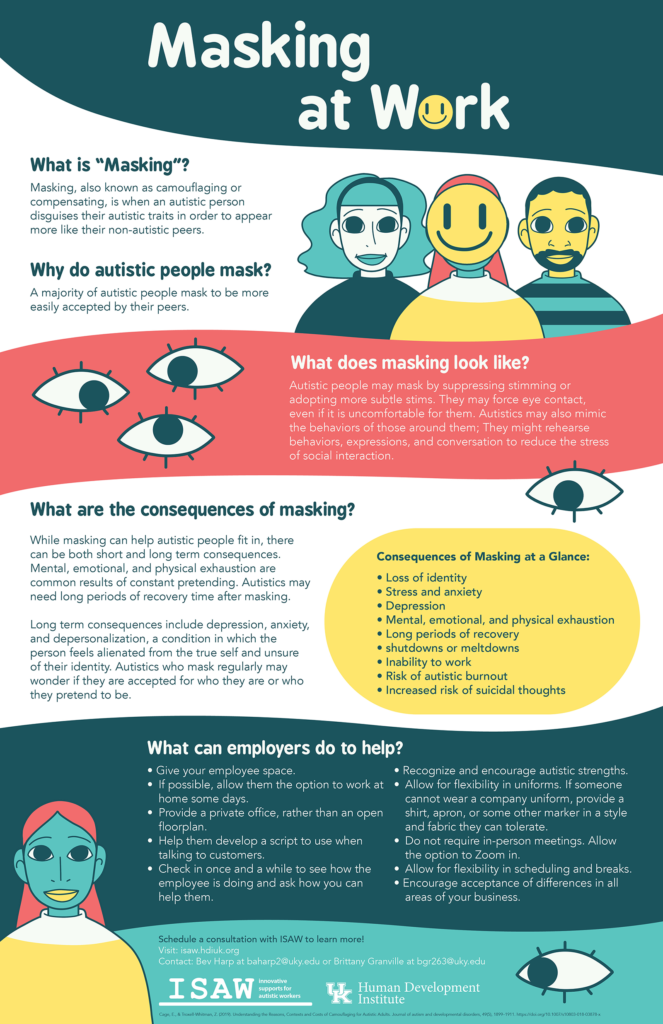
Plain text:
Title: Masking at work
What is “Masking?”
Masking, also known as camouflaging or compensating, is when an autistic person disguises their autistic traits in order to appear more like their non-autistic peers.
Why do autistic people mask?
A majority of autistic people mask to be more easily accepted by their peers.
What does masking look like?
Autistic people may mask by suppressing stimming or adopting more subtle stims. They may force eye contact,
even if it is uncomfortable for them. Autistics may also mimic the behaviors of those around them; They might rehearse behaviors, expressions, and conversation to reduce the stress of social interaction.
What are the consequences of masking?
While masking can help autistic people fit in, there can be both short and long-term consequences. Mental, emotional, and physical exhaustion are common results of constant pretending. Autistics may need long periods of recovery time after masking.
Long-term consequences include depression, anxiety, and depersonalization, a condition in which the person feels alienated from the true self and unsure of their identity. Autistics who mask regularly may wonder if they are accepted for who they are or who they pretend to be.
Consequences of Masking at a Glance:
• Loss of identity
• Stress and anxiety
• Depression
• Mental, emotional, and physical exhaustion
• Long periods of recovery
• shutdowns or meltdowns
• Inability to work
• Risk of autistic burnout
• Increased risk of suicidal thoughts
What can employers do to help?
• Give your employee space.
• If possible, allow them the option to work at home some days.
• Provide a private office, rather than an open floorplan.
• Help them develop a script to use when talking to customers.
• Check in once and a while to see how the employee is doing and ask how you can help them.
• Recognize and encourage autistic strengths.
• Allow for flexibility in uniforms. If someone cannot wear a company uniform, provide a shirt, apron, or some other marker in a style and fabric they can tolerate.
• Do not require in-person meetings. Allow the option to Zoom in.
• Allow for flexibility in scheduling and breaks.
• Encourage acceptance of differences in all areas of your business.
Schedule a consultation with ISAW to learn more!
Visit: isaw.hdiuk.org
Contact: Bev Harp at baharp2@uky.edu or Brittany Granville at bgr263@uky.edu
